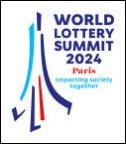Spain’s New Sports Law
SPAIN (March 31, 2023) — More than 32 years after the old sports law came into force, Law 39/2022 (Sports Law) was finally promulgated on 31 December 2022.
The new law does not merely replace and repeal the previous sports law, it redesigns certain aspects and introduces new rules for previously unregulated matters. While there was a general consensus that Spanish sports legislation needed an update, there were dissensions on the scope of the law and on various particular issues.
One of the issues that came under public scrutiny is the so-called Anti-Piqué Clause. It was coined as such by the press because Kosmos, a company linked to the football player, was allegedly involved in mediating the organisation of the Spanish football cup Supercopa in Saudi Arabia. Specifically, Article 51 b) prohibits Spanish federations from entering into business relationships with athletes who might participate in the national competition organised by the said federation.
Another controversial issue was the position of the professional leagues and specifically their (exclusive) competence in the commercialisation of professional competitions. Ultimately, this issue is regulated by Article 95 e) which confirms the competence of the leagues to commercialise audio-visual rights.
However, it would not be fair to focus only on the aspects that were discussed by the media and the public, as the new law extends far beyond the old sports law from 1990, aiming to adapt sports legislation to the new reality. In the words of the Spanish National Sports Council, one of the principal changes of the new law is that it aims to “recognise the right to practice sports, eliminate inequalities based on gender or disability, promote the presence of women in sports and regulate the rights and duties of athletes.”
Striking, from a legal point of view, is the detailed categorisation of athletes, in particular the distinction between competitive and non-competitive (or recreational) sports, federated and non-federated sports, between professional athletes and amateurs, as well as between high-level and high-performance athletes. These distinctions might seem quite theoretical on paper, in practice they do, however, have important implications, as different rights and obligations are assigned to each category of athlete.
As for sports federations, which are legally classified as private entities, the law maintains the model traditionally applied in Spain. This model mainly differs from the models in other countries by allowing greater control and influence from the State, delegating public functions and monopoly to the federations, and subjecting their activity to state authorisation.
By: Sven Wassmer.
SOURCE: Monereo Meyer Abogados – Lexology.
Tags: sports betting, Spain, Sports Law, Anti-Piqué Clause


























